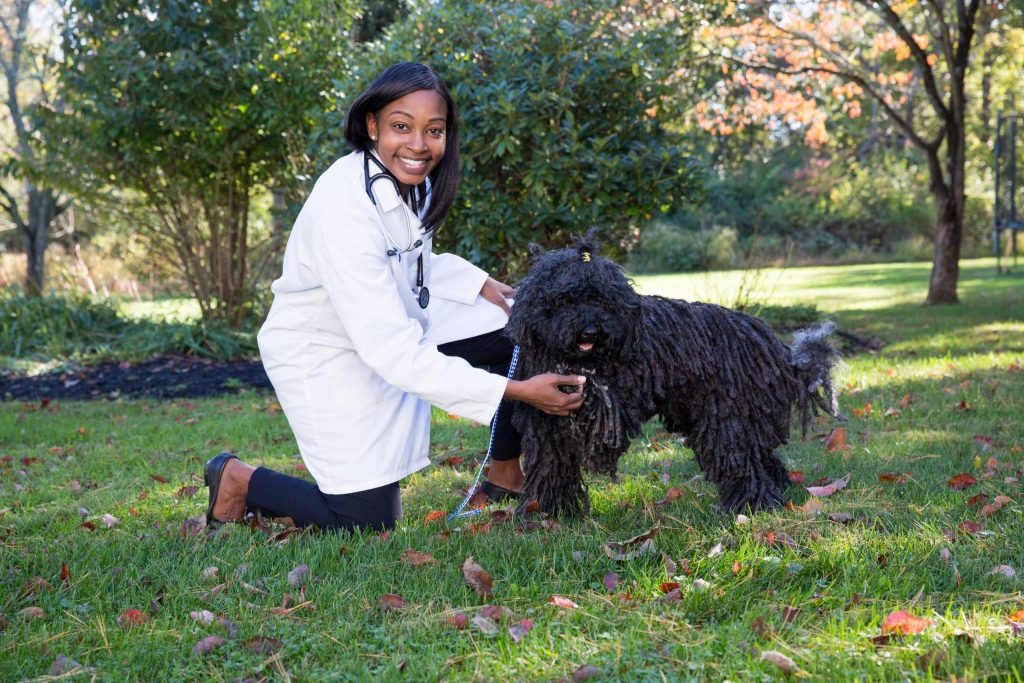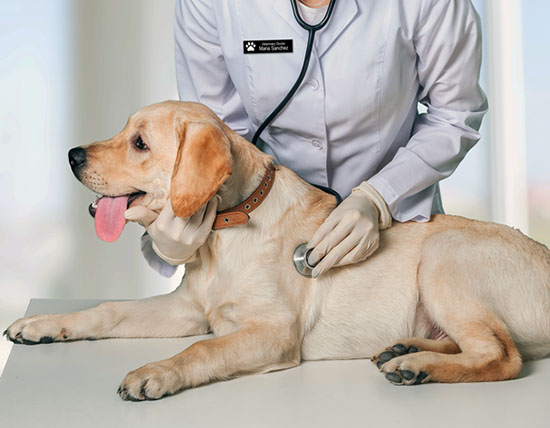Veterinary Cancer Specialist responds to common pet cancer questions
Wiki Article
Recognizing the Role of a Vet Oncologist in Your Pet's Cancer cells Care
A vet oncologist concentrates on detecting and treating cancer in pets. Their knowledge is essential for creating customized treatment plans that resolve the distinct requirements of each pet dog. Early diagnosis can considerably impact end results, making their function a lot more important. Comprehending the numerous treatment options and just how these experts collaborate with key veterinarians is necessary. What methods do they use to enhance your family pet's quality of life during this challenging time?
What Is a Vet Oncologist?
A vet oncologist is a specialized veterinarian who focuses on treating and detecting cancer in pet dogs. These specialists possess innovative training in both veterinary medicine and oncology, enabling them to understand the complexities of cancerous conditions in animals. Their expertise allows them to do a range of analysis procedures, consisting of imaging methods and research laboratory tests, to precisely recognize various kinds of cancers in pets.In addition to diagnosis, vet oncologists create customized therapy plans, which may consist of surgical treatment, radiation treatment, radiation treatment, or palliative care. They function very closely with pet owners to clarify therapy options and prospective end results, guaranteeing that families make educated choices concerning their pet dogs' care. Furthermore, vet oncologists commonly collaborate with other vet professionals and general professionals, creating a detailed method to animal wellness. By concentrating on cancer cells treatment, they play a vital duty in enhancing the quality of life for pet dogs diagnosed with hatreds.
The Significance of Early Diagnosis and Therapy
Early medical diagnosis and therapy of cancer in animals substantially boost the chances of successful outcomes and boosted lifestyle. When cancer is identified in its very early stages, veterinary oncologists can implement targeted interventions that might slow down condition development and reduce signs. This positive strategy enables better management of the illness, potentially leading to longer survival times and improved convenience for the animal.Additionally, very early detection frequently suggests that therapy alternatives might be less invasive and much more effective, lowering the total concern on both the pet dog and its proprietor. Regular veterinary check-ups and understanding of refined behavioral adjustments are vital, as they can assist in prompt medical diagnoses. Proprietors ought to stay vigilant and consult their veterinarian at the initial sign of worry. Board Certified Veterinary Oncologist. Eventually, a very early diagnosis encourages pet proprietors to make educated choices regarding their animal's treatment, considerably impacting the general trip through cancer monitoring
Therapy Choices Provided by Veterinary Oncologists
When confronted with a cancer cells diagnosis, pet dog owners can discover a selection of treatment choices supplied by vet oncologists that are customized to the details demands of their pets. These professionals normally use a mix of surgical procedure, radiation treatment, radiation therapy, and immunotherapy. Surgical treatment may aim to get rid of growths or impacted tissues, while chemotherapy utilizes drugs to kill and target cancer cells, typically provided in cycles.Radiation therapy focuses on making use of high-energy rays to shrink lumps and ease discomfort. Immunotherapy, a more recent development, uses the pet dog's body immune system to fight cancer cells better. Extra supportive therapies, such as pain management, nutritional support, and palliative care, are also necessary components of a thorough therapy strategy. By assessing each situation independently, vet oncologists ensure that the selected treatment aligns with the family pet's total health and cancer cells type, making the most of the possibilities of a positive outcome.
The Collaborative Method: Dealing With Your Primary Vet
Cooperation in between vet oncologists and main vets is crucial for offering substantial treatment to family pets identified with cancer cells. This partnership guarantees a comprehensive approach to therapy, combining the specialized understanding of oncologists with the recurring treatment provided by main vets. Together, they assess the animal's health, develop customized treatment plans, and monitor the family pet's progression throughout the cancer cells journey.Main vets often offer as the preliminary point of get in touch with, identifying potential indications of cancer cells and referring clients to oncologists for specialized diagnostics and therapy choices. Complying with the oncologist's recommendations, the main vet plays an essential duty in taking care of the pet's general health, consisting of discomfort administration and supportive care.
Efficient communication in between these professionals promotes a unified method, enabling for timely interventions and changes to therapy as required. This collective approach eventually boosts the top quality of treatment and support for pets and their proprietors during a challenging time.


Supporting Your Pet Dog Through Cancer Cells Treatment
Supporting an animal with cancer cells care calls for a comprehensive Board Certified Veterinary Oncologist understanding of the emotional and physical challenges faced by both the animal and its owner. Caretakers should listen to the animal's transforming needs, which may include managing discomfort, adjusting diet plans, and monitoring side results from therapies. Offering a comfy, hassle-free environment is essential for the pet's health.Psychological assistance is similarly crucial; owners ought to look for to stay favorable and engaged while being conscious of their own sensations of anxiousness and despair. Producing an assistance network, consisting of veterinarians, family members, and friends, can relieve some burdens.
Furthermore, pet dog owners need to inform themselves about the particular kind of cancer and treatment alternatives available, cultivating notified conversations with vet oncologists. Ultimately, a thoughtful technique, combined with aggressive care and assistance, can enhance the pet dog's quality of life throughout this tough journey.
Regularly Asked Concerns
Just how Do I Pick the Right Veterinary Oncologist for My Family pet?
Selecting the appropriate veterinary oncologist involves researching qualifications, looking for referrals, reviewing experience with details cancers cells, evaluating interaction designs, and visiting centers to assure a comfy environment for both the family pet and proprietor during treatment.What Should I Expect During the First Visit?
Throughout the first visit, the pet proprietor can expect a comprehensive evaluation, discussion of case history, analysis examinations, and a treatment strategy synopsis. The veterinarian will attend to worries and offer support for recurring treatment.Are There Any Type Of Expenses Associated With a Veterinary Oncologist's Solutions?
Prices connected with a vet oncologist's services can differ significantly based upon area, therapy complexity, and needed diagnostics. Pet Cancer Surgery. Pet dog proprietors ought to anticipate expenses for appointments, examinations, and prospective ongoing treatment strategies customized to their pets' requirements
Can My Pet Dog Still Get Regular Veterinary Treatment While Seeing an Oncologist?
Animals can receive normal veterinary care while seeing an oncologist. Collaborating treatments assurances comprehensive health monitoring. Regular exams complement specialized cancer care, enabling all natural monitoring of the pet dog's general wellness and attending to other health worries.What Resources Are Available for Pet Dog Owners Throughout Their Animal's Cancer cells Journey?
Numerous resources are readily available for pet proprietors maneuvering their pet dog's cancer trip, consisting of support system, on-line discussion forums, academic web sites, and financial help programs, all intended at offering support, emotional support, and practical details during this challenging time.A vet oncologist is a customized veterinarian who focuses on dealing with and diagnosing cancer in pets. They work carefully with animal owners to discuss treatment options and prospective outcomes, ensuring that family members make notified decisions regarding their pet dogs' treatment. When encountered with a cancer diagnosis, animal proprietors can discover a selection of therapy alternatives provided by veterinary oncologists that are tailored to the certain needs of their animals. Cooperation in between vet oncologists and main veterinarians is crucial for providing substantial care to family pets diagnosed with cancer cells. Additionally, pet proprietors need to educate themselves about the specific kind of cancer cells and therapy choices readily available, cultivating educated conversations with vet oncologists.
Report this wiki page